The International Court of Justice in The Hague issued a warrant for putin's arrest: what it means and why it's not so clear
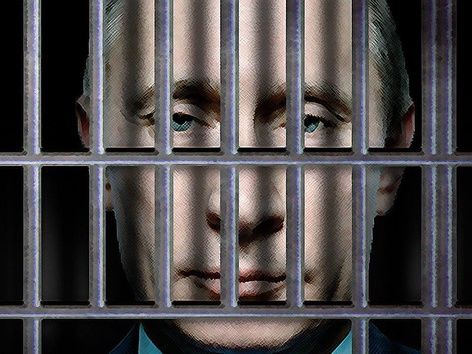
The main russian criminal, putin, has been issued an arrest warrant. Find out more about who should enforce the court decision and whether it is possible now
The International Criminal Court (The Hague) has issued an arrest warrant for russian dictator vladimir putin. This is an absolutely major event in modern history, but in this article we will analyze what the court's decision means and why everything is not as "smooth" as it seems.
First, let's take a look at the press release from The Hague. It says that arrest warrants have been issued for two people in the russian federation - president putin and ombudsman maria levova-belova. The court's decision is preliminarily related to the deportation of Ukrainian children from the temporarily occupied territories.
The court notes that the crimes were committed at least since February 24, 2022, and there are reasonable grounds to believe that the russian president is individually criminally responsible for this. In particular, because he is unable to ensure proper control over the people who carried out the abductions.
Was the warrant justified? Absolutely! The russian ombudsman personally boasted to the russian dictator on TV cameras about the "adoption" of a boy from Mariupol, and he, in turn, encouraged her.
What is the International Criminal Court and who reports to it?
The International Criminal Court is the first criminal justice body. This body is responsible for cases of genocide, war crimes, crimes against humanity, and crimes of aggression. The Court was established on the basis of the Rome Statute, adopted in 1988. It officially began its work in 2022.
To date, 122 countries have signed and ratified the Rome Statute. It is these states that must strictly comply with the court's decisions.
It is worth noting that some countries have not signed the statute, and some have signed but not ratified it. That is, there are certain countries that legally have the right not to comply with the court's decision. These countries are marked on the map below.
Green - signed and ratified
Yellow - signed but not ratified
Orange - signed, but then withdrew
Red - neither signed nor ratified
Is the decision on putin really enforceable?
After the court's verdict, Prosecutor General of Ukraine Andriy Kostin took the floor. He noted that the arrest warrant for putin means that he must be arrested outside of russia and brought to court.
"World leaders will think twice before shaking his hand or sitting down with him at the negotiating table. This is just the beginning of a long journey to restore justice", - Kostin wrote.
However, the kremlin's position is the opposite. It has already reacted to the verdict against its patron. The russian foreign ministry claims that their country "is not a party to the Rome Statute and has no obligations under it. russia does not cooperate with this body, and possible "recipes" for arrest coming from the International Court of Justice will be legally null and void for (the russian federation - ed.)".
In other words, Moscow, to put it mildly, does not take the decision of the Hague Court seriously (not surprisingly). However, the opinion of the russian federation is not taken into account for putin's arrest, since the countries that ratified the statute have given their commitments, which is legally fixed.
As for presidential immunity, the head of state does not have immunity before an international court, and countries should decide on cooperation between individual states themselves. However, within the framework of interstate relations, the head of state has personal immunity, which means that he cannot be arrested by another state as long as he is in office and is recognized as such.
In any case, if putin appears in a country that recognizes the jurisdiction of the ICC, the decision to arrest him will be made by the state itself. And here's another "but": the International Criminal Court has almost no mechanisms to force a state to fulfill its obligations.
You may ask, is it possible that putin will visit one of these countries? It is quite possible. For example, russia has close relations with Tajikistan, which recognizes the Rome Statute and where russian planes still fly. It is possible that the russian dictator could make an ostentatious visit to this country, most likely without any consequences for himself.
A similar case could also occur in South Africa, where putin is scheduled to go to the BRICS summit in August. South Africa is one of the countries that has ratified the statute and by law must obey the ICC's decisions.
The conclusion of this analysis is simple: the arrest of the Russian dictator is a matter of time, but now the execution of the court's decision is hardly possible.
What does history say?
If we look back in time, we will see that the Hague Tribunal has repeatedly indicted high-ranking officials and presidents of countries. Most importantly, the investigations and arrests have been successful.
Former leader of Côte d'Ivoire Laurent Gbagbo
The case of the Ivorian leader was launched relatively recently - on January 26, 2016. The former president and his aide were accused of organizing a joint plan that led to large-scale killings, rape, persecution and other inhuman acts.
Laurent Gbagbo and his aide Charles Blé Goudé are believed to be the most senior politicians ever to appear before the International Criminal Court since its inception.
Gbagbo was transferred to the ICC in 2011. In 2019, he was acquitted.
Former President of Sudan Omar al-Bashir
The story of al-Bashir is different from the above. In 2015, the ICC demanded that the South African government arrest and extradite the former Sudanese president, who was accused of crimes against humanity and genocide.
His extradition is being sought in The Hague to this day. The former Sudanese leader had previously visited countries that are members of the ICC, but was not arrested. In total, the arrest warrant did not prevent him from "ruling" for another 11 years.
In 2019, during a military coup, al-Bashir was overthrown and arrested. Sudan promises to extradite the former president to the Hague Court.
Former Yugoslav President Slobodan Milosevic
In May 1999, the Hague Tribunal (not affiliated with the ICC. History is cited as an example) indicted former Yugoslav President Slobodan Milosevic for war crimes in Kosovo in 1999.
He and four other senior Yugoslav leaders were charged with five counts of crimes against humanity.
On April 1, 2001, Milosevic was arrested and then transferred to the UN prison in The Hague. Five years later, he was found dead in his cell. He died of a heart attack.
We have no doubt that the world will definitely see putin behind bars, as truth and justice always prevail.
Glory to Ukraine!
Glory to the Armed Forces!
Our products and cooperation:
Visit Ukraine Tours is the largest online database of tours in Ukraine for every taste;
Visit Ukraine Merch - patriotic clothing and accessories with worldwide delivery;
Visit Ukraine Tickets - book airline tickets to anywhere in the world, as well as bus and train tickets;
Cooperation – cooperation and advertising integrations with the Visit Ukraine and Visit World projects.
Recommended articles
2 min
War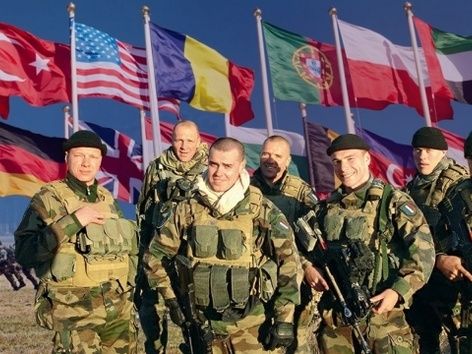
International Legion: how and why foreigners fight for Ukraine
Thousands of foreigners protect Ukraine and help us fight for the freedom of the state. Learn more about the International Legion and world-famous foreigners who have joined the ranks of the Armed Forces
03 Jan. 2023
More details1 min
War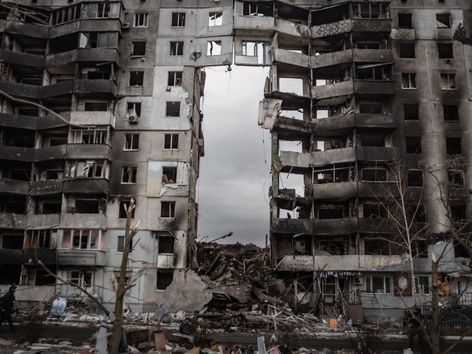
Compensation for the loss of a home during war: how to record the destruction correctly
Ukrainians whose homes were destroyed as a result of the war have the right to receive monetary compensation from the state. Learn more about how to properly capture destruction
26 Jan. 2023
More details1 min
War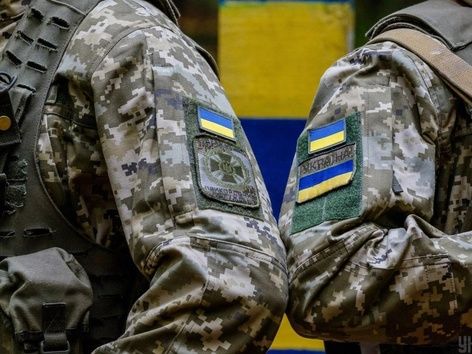
Officials were forbidden to leave Ukraine during the war: rules and exceptions
The government approved Resolution No. 69 and made changes regarding the travel abroad of people's deputies, deputies of local councils, judges, prosecutors, civil servants and other categories of persons. Learn more about who was banned from leaving the country
03 Feb. 2023
More details1 min
War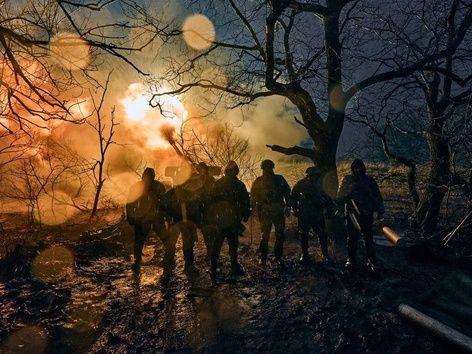
The offensive guard in Ukraine: what kind of formation is it, who is hired and how much they pay
The Ministry of Internal Affairs of Ukraine has started the formation of "Offensive Guard" assault brigades. Find out more about who can apply for admission to the formation and who is accepted there
07 Feb. 2023
More details

